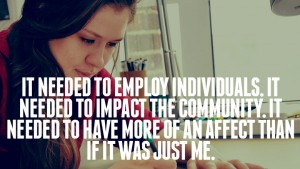Based on our conversation in class yesterday, here is a recent article looking at the State of Washington’s liberalization of the legal market by adding a legal technician license. Although the State is only allowing the licences to be used in the practice of family law to start, it will probably grow quickly if embraced by the general public.
Here are the requirements for the license:
“To become an LLLT, an applicant must have at least an associate’s degree and complete 45 credit hours of core curriculum currently being taught at community colleges in the state. The core curriculum is specified by court rule and covers topics such as civil procedure, contracts, legal research and writing, professional responsibility, and law office procedures and technology.
In addition, applicants must complete courses specific to the practice area in which they seek to be licensed. For family law, the only approved practice area so far, the 15-hour curriculum was developed jointly by the state’s three ABA-approved law schools—at Gonzaga University, Seattle University and the University of Washington. Applicants also must have 3,000 hours of substantive law-related work experience supervised by a licensed lawyer.”
